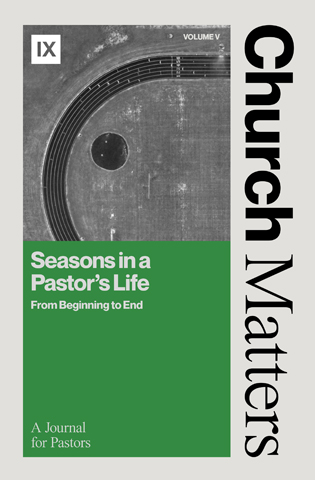How to Decide When It’s Time to Stay or Go
June 10, 2024

June 10, 2024
Leaving a pastoral charge can be hard. Staying can be hard, too. And deciding to stay or go is more complicated the longer one serves. Deep relationships, familiar patterns of worship, well-worn spiritual practices, and hard-won battles loom large before you.
In my autonomous church circle, the pastor, his wife, and maybe his closest friends are involved in the decision over staying or going. His elders or other leaders may become involved later. The pastoral process of staying or going calls for deep reflection, prayer, research, and waiting on God. What might that look like?
Long pastorates give time to work through transitions in polity, leadership, worship development, mission impetus, and pastoral training. Short pastorates generally don’t allow roots to grow deep among a people—roots that should make the thought of leaving feel like tearing up the heart’s soil. So aim for longevity and then develop the following:
Not all pastorates are long. Some end abruptly. But when you’ve stayed long, how do you know when it’s time to move on?
Would a vacation or sabbatical rekindle your pastoral juices, or are you at a point where you can no longer serve with joy but can’t bring yourself to admit it? Have unpastoral attitudes affected your ministry patterns, requiring repentance and renewal? Are you reacting to wounds by a few causing you to think of leaving? Has pride gotten in the way of making a good decision about the future? Are your days of effective ministry in the past?
Have you taken the church as far as they’re willing to go? Have you exhausted your abilities to lead them? Would another pastor be able to better shepherd the flock in this season? Are you lagging in zeal, strength, pulpit passion, and leadership effectiveness, but reluctant to consider that a change might be best? Would retirement from active pastoral duties better serve your church, marriage, and life?
The church doesn’t belong to you. Jesus called it “my church” when he committed to build it (Matt. 16:18). He may be pleased to use you for a season to accomplish his purposes, but that does not make you an owner. He may send you to plow and plant but raise others to harvest (John 4:35–38). Your pastoral stewardship involves the future as well as the present (1 Cor. 4:1–2).
Therefore, hold your pastoral charge loosely. As difficult as it may be, faithfulness may require giving up that charge.
When serving one congregation for an extended period, we develop perceptions that may affect our ability to discern whether to stay or go. Here are questions for further evaluation.
Negative answers to any of these questions do not demand leaving! Again, you may need a good sabbatical to regain your passion and strength that could have weakened with a constant foot on the accelerator. Or you may need to realign staff and elder responsibilities. Or you may realize it’s time to leave and entrust the flock to another shepherd. Assess yourself, confer with your wife and closest friends, and earnestly seek the Lord.
If, after honest evaluation, you conclude that your church would be healthier if you stayed, then you must further ask yourself: Have I taught the church an unhealthy dependence upon my personality, gifts, and leadership style, rather than dependence upon Christ alone? If so, before considering a move, you may want to work toward increasing shared leadership, training members for ministry, and emphasizing Christ-dependence.
There’s a sense in which pastors must always keep transition in the back of their minds. That may sound contradictory to the earlier appeal for longevity. But you don’t know what divine providence might have for you. Therefore, labor to have your church healthy and maturing.
Consider:
Utilize these questions to help you discern motives, perceptions, and readiness for you to stay or to go.
And if you do bid your flock goodbye, leave like a shepherd, not a hired hand.

Different seasons impose different challenges and afford different opportunities. Brother, pastor, are you ready for the next season?
Go to Journal →